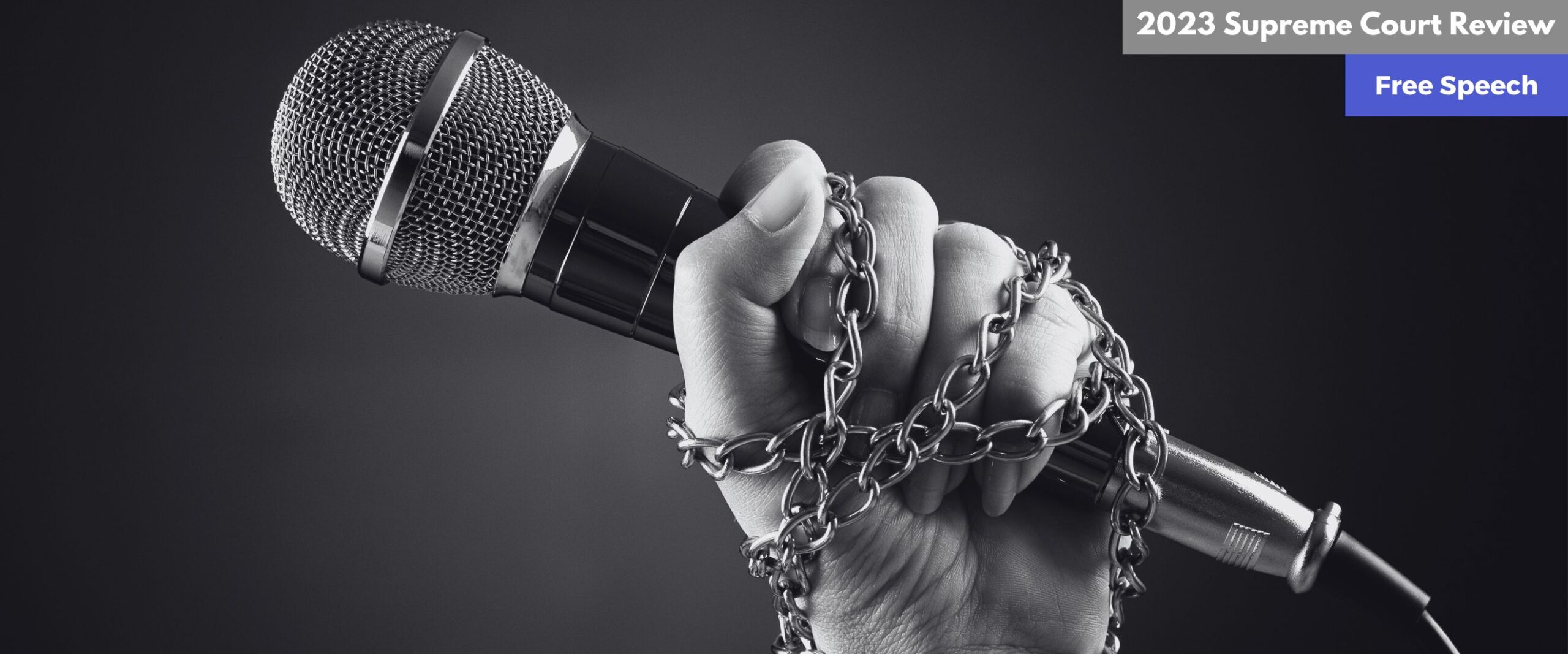Analysis
Supreme Court Review 2023: Freedom of Speech
The Court ruled in favour of media outlets in some free speech cases though the key sedition matter is moving at a glacial pace

In a year that raised serious concerns about the executive’s commitment to free speech, the Supreme Court provided some succour. It was a particularly trying year for independent media outlets, some of which were slapped with defamation and sedition charges. The most well-reported of these was the Newsclick case, where 300 devices were seized from 90 journalists as part of an investigation into whether the outlet was raising funds for terrorist acts.
Sedition was at the centre of the storm in August when the new criminal laws—which have now received presidential assent—were first proposed in Parliament. Observers have noted that even as the word “sedition” has been dropped from the new penal code, its ambit has been widened with the broad wording of “endangering the sovereignty, unity and integrity of India.” In September, the Supreme Court referred the matter relating to the constitutionality of sedition to a larger bench. We cover that matter and three more relating to free speech in this round-up.
Public Official’s Freedom of Speech (Kaushal Kishore v State Of Uttar Pradesh)
In 2016, Azam Khan, an MP from the Samajwadi Party, stated the allegations of gang rape made by a teenage girl and her mother were a “political conspiracy to defame the [U.P.] government”. The two then approached the Supreme Court with the complaint that Khan’s statement violated their right to life and liberty and interfered with the ongoing investigation of their allegations.
On 3 January 2023, a five-judge Constitution Bench led by Justice Abdul Nazeer held that the freedom of speech could not be restricted for any reason other than those under Article 19(2)—not even the violation of other fundamental rights. The Court did, however, mention that public officials needed to be more careful with their comments. It also stressed the need for a code of conduct to regulate the same.
Quashing the broadcast ban on MediaOne (Madhyamam Broadcasting Ltd. s v Union of India)
Reportedly operated by the Jamaat-e-Islami Hind (JEIH), MediaOne TV is a broadcast channel. In January 2022, the Ministry of Information and Broadcasting (I&B Ministry) refused to renew MediaOne TV’s transmission licence citing national security concerns. This effectively banned the channel.
The channel moved the Supreme Court after the Kerala High Court upheld the ban in February 2022 based on a “sealed cover” submitted by the Union. They claimed that the ban was arbitrary and violated the freedom of speech and expression.
On 5 April this year, a Division Bench comprising Chief Justice D.Y. Chandrachud and Justice Hima Kohli quashed the ban. The Bench reasoned that the evidence in the case did not adequately support the Union’s claim that the channel threatened national security. Further, the Bench held that the High Court was wrong to uphold the ban based on a report in a sealed cover.
Reference of the challenges to sedition law to a larger bench (SG Vombatkere v Union of India
Section 124A of the IPC describes sedition as “attempts to excite disaffection towards, the Government established by law in India.” In February 2021, two journalists filed a petition in the Supreme Court challenging the constitutionality of sedition law, which was upheld in the 1962 judgement of Kedar Nath v Union of India. Since then a plethora of petitions have been added to the list.
Since May 2022, a Division Bench of the Court has been contemplating the reference of this case to a Constitution Bench.
Much has happened with sedition this year. First, in June, 279th Law Commission report recommended increased punishment and wider application of sedition law citing national security. The Union also introduced three new criminal laws to replace existing ones. Despite this, on 12 September 2023, a Division Bench led by CJI Chandrachud referred the batch of petitions challenging sedition law to a bench of “at least five judges.” The reference came in spite of the Union claiming that they were in the process of framing new laws on the matter. The Bench reasoned that Article 14, Article 21 and the doctrine of proportionality jurisprudence had evolved significantly since the decision in Kedarnath, and it was necessary to evaluate the law in that light.
Guidelines for the search and seizure of digital devices (Foundation for Media Professionals v Union of India)
In October 2022, the Foundation for Media Professionals (FMP) filed a writ petition at the Supreme Court seeking guidelines in the procedure for the search and seizure of electronic devices.
FMP claims that electronic devices are an extension of one’s self, and the absence of regulations exposes personal data to unwarranted access by law enforcement and investigative agencies. This not only infringes the fundamental right to privacy enshrined under Article 21 but also violates the right against self-incrimination under Article 20(3). The result was a chilling effect on press freedom. The Court had issued notice to the Union government in the case last year.
In November 2023, a Bench comprising Justice S.K. Kaul and Sudhanshu Dhulia directed the Union to frame guidelines after hearing the parties. The Union has sought more time for the same. Its counsel told the Court that the guidelines in the CBI Manual will be applicable until then. The case is scheduled to be heard again in February 2024. Since Justice Kaul has retired, it will have to be listed before a fresh bench.